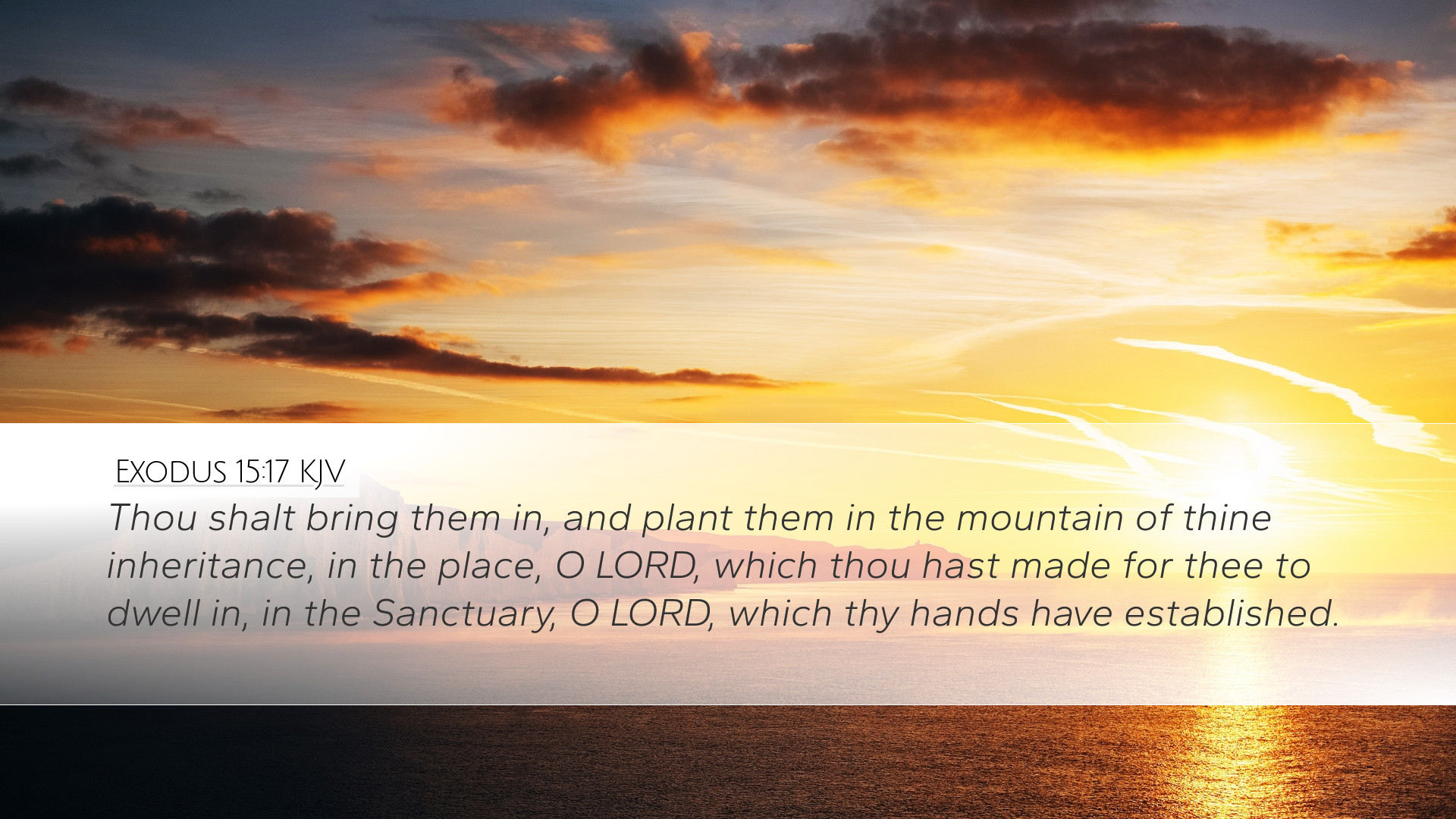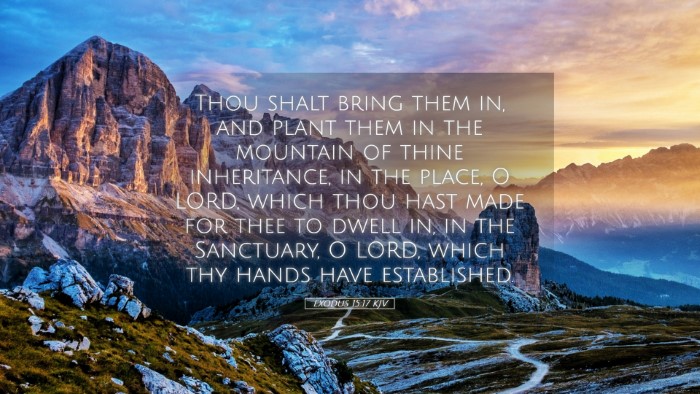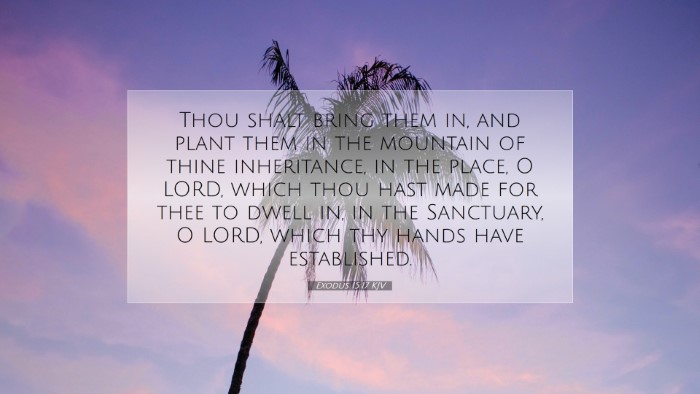Commentary on Exodus 15:17
Verse: "Thou shalt bring them in, and plant them in the mountain of thine inheritance, in the place, O Lord, which thou hast made for thee to dwell in, in the sanctuary, O Lord, which thy hands have established."
Context and Overview
The verse is part of the Song of Moses, a hymn sung by the Israelites after their deliverance from Egypt. It is a celebration of God's mighty acts and the assurance of His continued faithfulness to His people. The themes of redemption, guidance, and establishment of God's dwelling among His people permeate this verse.
Insights from Commentaries
1. Matthew Henry's Commentary
Matthew Henry emphasizes the significance of the promise inherent in this verse. He reflects on the metaphor of "mountain" as a representation of stability and strength. The "mountain of thine inheritance" symbolizes the promised land, a place where God chooses to reveal His presence. Henry notes that this realization forms a foundation for understanding God's ultimate purpose for His people, which includes not only spatial dwelling but the relational aspect of intimacy in worship. He indicates that the word "plant" signifies not just dwelling but rooting deeply in faith and covenant.
2. Albert Barnes' Notes on the Bible
Albert Barnes provides a detailed analysis of the terms used in this verse. He highlights the "sanctuary" as a key element that signifies God's chosen place of worship. Barnes stresses that the sanctuary is not merely a physical location but a representation of a unique relationship between God and His people. He points out that the act of God establishing this sanctuary serves as a guarantee of His presence and support. Barnes further elaborates on the idea of 'bringing them in,' signifying God’s active role in leading His people into a relationship and land that fosters divine communion.
3. Adam Clarke's Commentary
Adam Clarke adds a historical context to the verse by discussing the transition from captivity in Egypt to the hope of a promised land. Clarke emphasizes God's unwavering commitment to His people’s journey. He interprets “the mountain of thine inheritance” as an allegorical reference to both the physical land of Canaan and the heavenly realm that awaits believers. Clarke also reflects on the importance of the sanctuary as not only a place but a concept of God's dwelling with humanity, reminding readers of the divine intention behind God establishing a holy space among His people. He beautifully connects this thought to the New Testament concept of believers as temples of the Holy Spirit.
Theological Implications
This verse reveals several theological implications for understanding God’s nature and His relationship with humanity:
- The Faithfulness of God: The assurance of God bringing His people into a place of inheritance highlights His unwavering promise despite human imperfection.
- The Presence of God: The reference to the sanctuary underscores God’s desire to dwell among His people, which is echoed throughout Scripture, culminating in Christ’s incarnation and the indwelling of the Holy Spirit.
- The Identity of Believers: This text invites reflection on the identity of believers as part of God's chosen people, underlining the privilege and responsibility that comes with it.
Application for Modern Believers
For pastors, students, theologians, and scholars, the insights gleaned from this verse challenge and inspire contemporary understanding of God's faithfulness and presence. Believers are encouraged to engage in worship not just as a ritual but as an acknowledgment of the sacred communion made possible through Christ. The metaphor of being ‘planted’ serves as a reminder of the importance of rooting one's faith in the promises of God, fostering spiritual growth and stability amidst life's challenges.
Furthermore, this passage can be seen as an invitation to participate in God’s mission of establishing a place of refuge and sanctity in the world today, reflecting the hope of the gospel to others.
Conclusion
Exodus 15:17 serves as a profound reminder of the rich theological themes inherent in the narrative of Israel's deliverance. The combination of commentary insights from men like Henry, Barnes, and Clarke lead us to a deeper understanding of how God continues to work in our lives and communities. It is a call to reflect on how we embody the presence of God and how we are called to plant our lives firmly in Him, renewing our commitment to dwell in His sanctuary.


